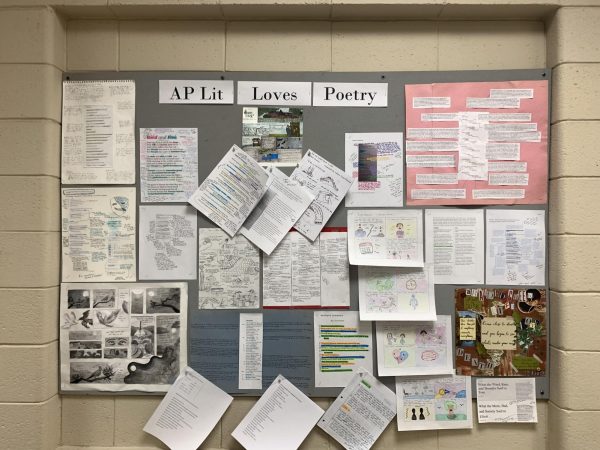Too Early: Sleep, School and the Impact on Teens
High school students enter their first class, yawning, and barely coherent. Teachers are energized and ready to start their days, but students sit at their desks, the images of lying in bed more appealing than any subject to be learned that day.
It is only 7:25 am.
It’s not that students don’t care about the topic. They are just too tired to.
“We stay up late doing homework and we get up early,” junior Julia D’Agostino said. “School starts too early.”
From a full day of school, to doing homework, to participating in school activities, to working a job, to playing sports, and fulfilling their role at home, teenagers have grown busier.
And tired.
The National Sleep Foundation states that “adolescents require at least as much sleep as they did as children, generally 8 ½ to 9 ¼ hours each night.” They warn that teens who do not get enough sleep each night are at risk for a wide range of symptoms including “drowsy driving, depression, and poor impulse control and violence.”
It is true that teenagers do not sleep as much as they should. But an important distinction many people forget to make is that teenagers have different biological “clocks” than adults.
National Public Radio (NPR) notes that “teens’ biological bedtime is more like midnight, and if parents expect them to go to sleep at 10 p.m., it often doesn’t work.”
This shift in teenagers’ schedules, less sleep and more priorities, has prompted school districts across the United States to reconsider their current schedules and make changes accordingly.
After reviewing the 2014 School Health Policies and Practices Study, the Center for Disease Control (CDC) reported that “93% of high schools and 83% of middle schools in the U.S. started before 8:30 am.”
Franklin and Roosevelt High Schools in Washington are among this statistic, their school days beginning at 7:50 am.
NPR detailed how researchers from the University of Washington studied the schools after the district changed their start time from 7:50 to 8:45 am.
“They [researchers] found that students got 34 minutes more sleep on average with the later start time,” NPR stated. “This boosted their total nightly sleep from 6 hours and 50 minutes to 7 hours and 24 minutes.”
An extra hour half of sleep could benefit teens and their education. Among the other benefits the researchers found was improvement in grades and less absences.
Any amount of sleep is beneficial.
“If you have students more attentive, you could have potentially higher test scores and potential for a greater level of learning,” said Mr. Clifford, a history teacher at CB South, who has taught middle school and high school students.
The benefits to a later start time are very appealing. But school districts still need to look at both sides of the discussion.
Any change to be made would present logistical challenges and consequences.
“The impact is vast,” said Mr. Hill, a guidance counselor at CB South. “[A change] impacts a lot of people.”
This is especially true for large school districts such as Central Bucks. With three high schools, five middle schools, and 23 elementary schools, even a small change could create major consequences.
Bus transportation is one of them.
Since Central Bucks encompasses a wide area, rearranging bus times in relation to the new start time would prove challenging.
Mr. Hill discussed the challenge of coordinating buses with other school districts for sports. While one school district could start later, another district might not, lengthening the gap between dismissal and the start time of sporting events.
“Transportation can be a major issue,” he said.
One issue that is consistently brought up is extracurricular activities, namely sports.
Since sports start after school, a later start time would push back sporting events, both their start and end times. Regardless if it is a game or practice, students would get out of their sport much later, losing time for homework, among other things.
But sports are not the only activities impacted.
The National Sleep Foundation also warns that students with after school jobs or who participate in clubs and community service would be impacted as well. Starting later also means ending later for clubs, music, and possibly jobs too.
Mr. Clifford cautioned the school district about the delayed start time, saying, “It has to be done thoughtfully. What is it that we want to achieve? What people will be affected?” and the district should “know exactly what they want to do.”
Mr. Hill agrees, adding that the district should have “a plan that runs as smooth as possible” if a change were to be considered.
While Central Bucks is in no position yet to change the schedule, the discussions have certainly provided interesting perspectives. Academic excellence is always the priority but students can’t reach that level if they are tired. While students might clamor for a later start time, it is important to remember the potential consequences.
“Kids will be more awake if school started later,” junior Julia D’Agostino said. “I think a lot of other people feel the same way.”
As school districts remain at a crossroads for the right decision to make, students still find themselves hitting snooze on their alarms.


